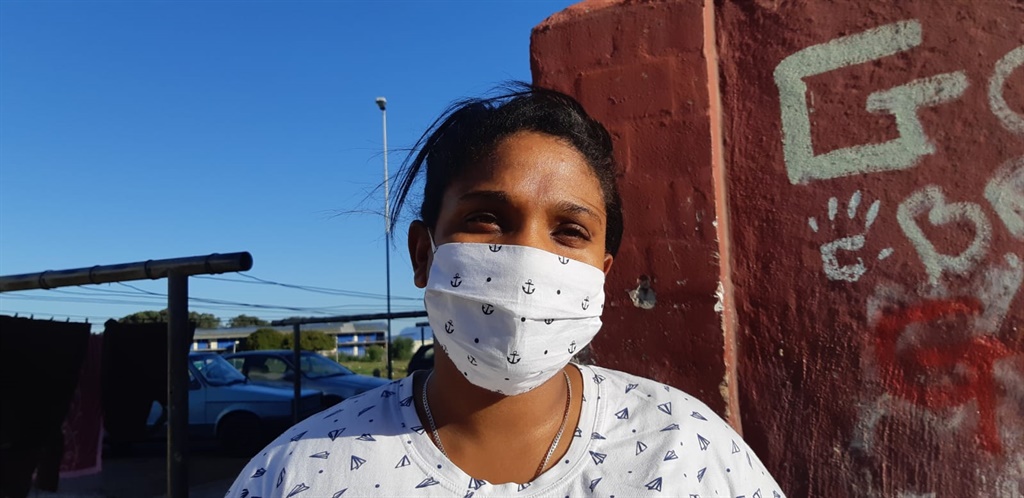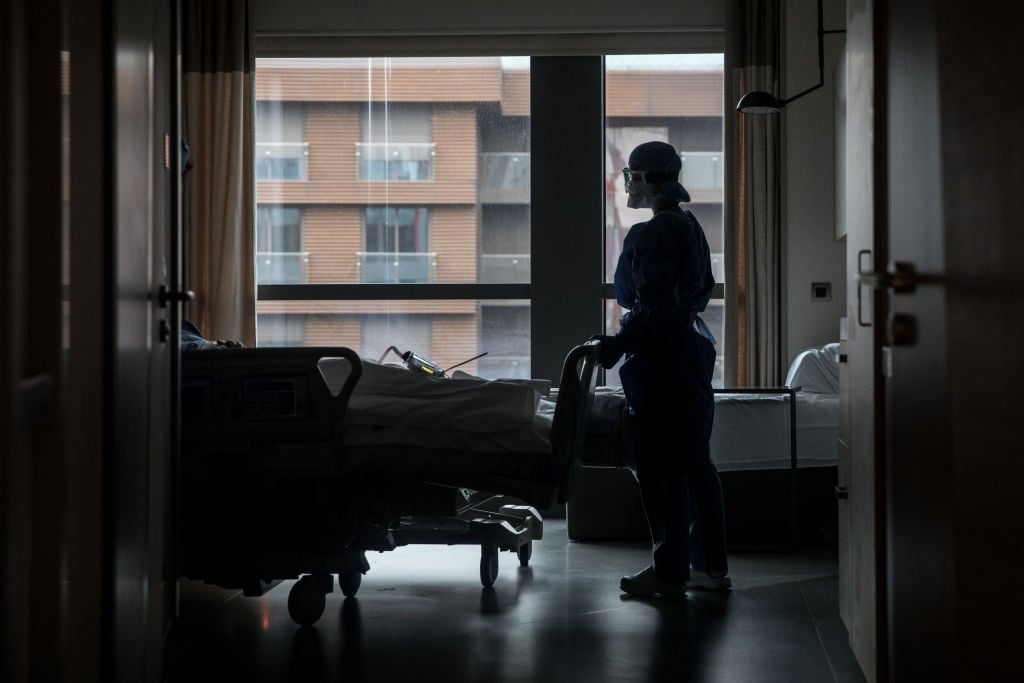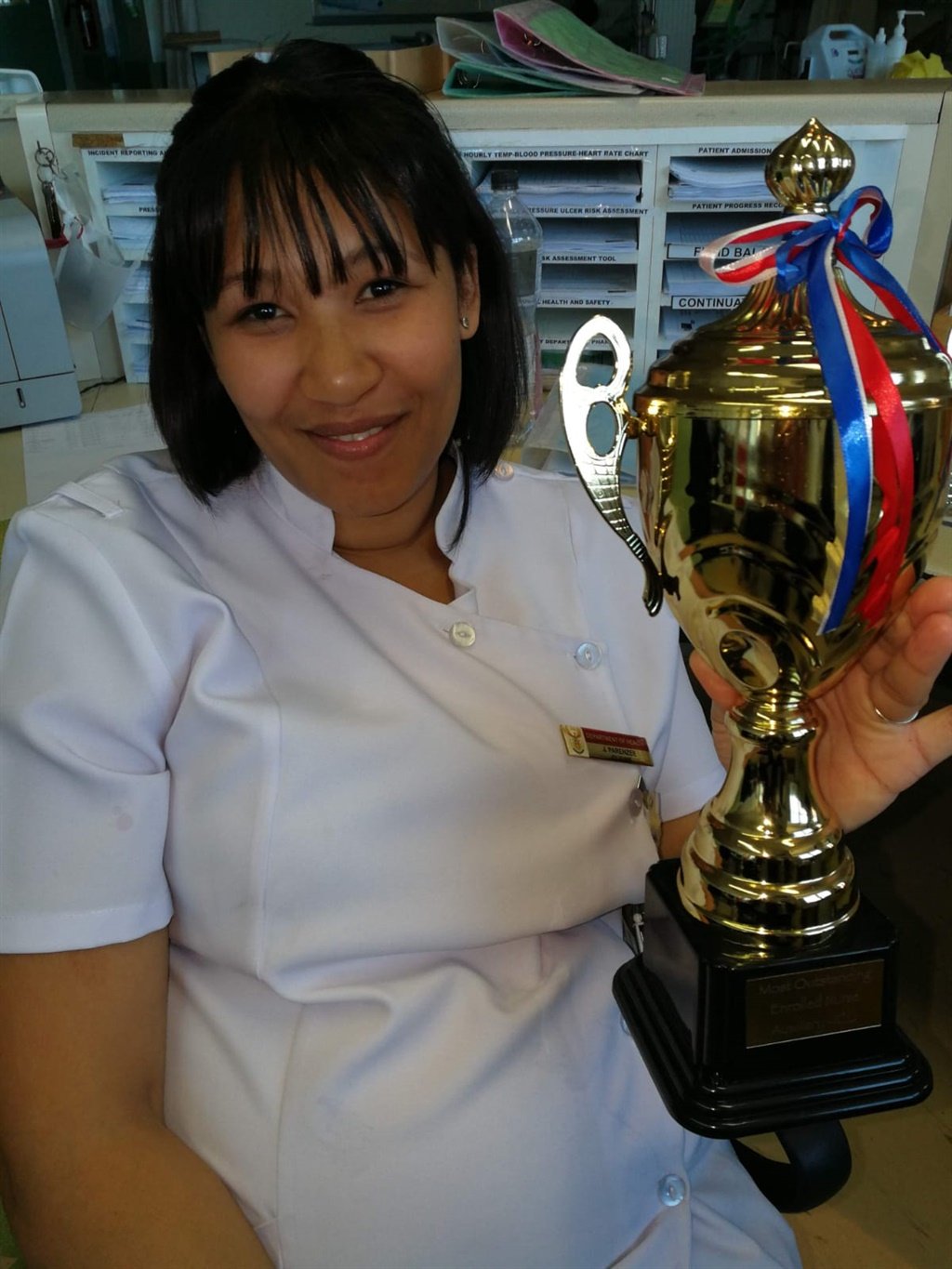 Worried about her hungry neighbours suffering during the Covid-19 lockdown and job wipe-outs, Cape Town domestic worker Lauren Juries has started a soup kitchen in her flat in Ottery.
Worried about her hungry neighbours suffering during the Covid-19 lockdown and job wipe-outs, Cape Town domestic worker Lauren Juries has started a soup kitchen in her flat in Ottery.
Roping in her mother, Estelle Stefanus, and her aunts, enormous pots of lentil stew and rice are cooked on their stove in their tiny kitchen in Regents Court under the banner of “Ottery Community Action Now” (Ottery Can).
By sunset, a long queue has formed outside the blocks of flats, which include children, and bowls and plates are filled, so that they don’t have to go to bed hungry.
“I’m on the ground and I see what they need,” said Juries.
On Youth Day, a public holiday, the cooks were a bit ambitious and tried to cook more than usual, to cater for the extra numbers. However, the rings on the modest stove bent from the heaviness of the pots and so they had to straighten them out and lighten the load in the pots.
Juries is a domestic worker in Green Point, which is very far afield, and in Pinelands.
The cleaning of houses and washing and ironing does make her tired, but she cannot bear the thought of neighbours going hungry.
On her Backabuddy page to raise funds, she notes that Covid-19 has made life very hard for the residents of the blocks of flats.
“Isolation here is near-impossible, what with 4-12 people sharing a flat. The impact of lockdown on the people who live here is crippling. They have a roof over their heads, but no money to buy food and amenities. This is a community struggling for survival.”They also feel forgotten and desolate, with the GPS not even showing the location of their flats, making them feel even more invisible.
It is for this reason that Juries loudly lobbies for more money, electricity units and food parcels for her community.
She also helps to connect the needy with people who are better off and have something to spare in a buddy programme, called Amakhaya, that one of her employers told her about.
In this programme, 44 needy families are matched with 44 families who are better off, and they look out for each other and check in on each other by phone, in line with physical distancing.
The people, who have something to spare, will send to those who are struggling with electricity units, or a retail shop voucher for groceries, or cash for other essentials.
She also checks in on old people who struggle to use their phones, to make sure they are not isolated.If you want to help, the link will take you to where you can sponsor a food parcel, or sponsor a pot of food for R250, or you can send a food voucher, or send electricity units.
For example, R500 can make a good hot meal for at least 300 people a day, and it can be used to buy electricity for those who need.
They have discovered that the community prefers a hot meal like a stew or soup as winter sets in, and not sandwiches, so her mom’s stove is working overtime at the moment.
 Groote Schuur Hospital nursing assistant Judith Parenzee describes Covid-19 as “a war”.
Groote Schuur Hospital nursing assistant Judith Parenzee describes Covid-19 as “a war”. However, after Western Cape Premier Alan Winde announced the first case in the province on 11 March, the virus spread quickly in the province.
However, after Western Cape Premier Alan Winde announced the first case in the province on 11 March, the virus spread quickly in the province.